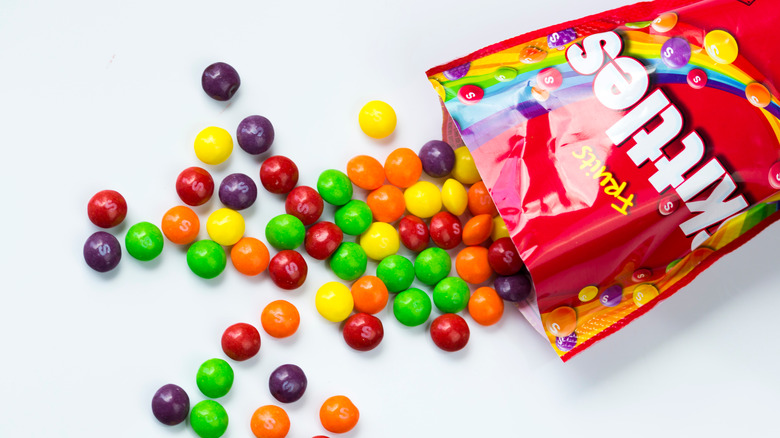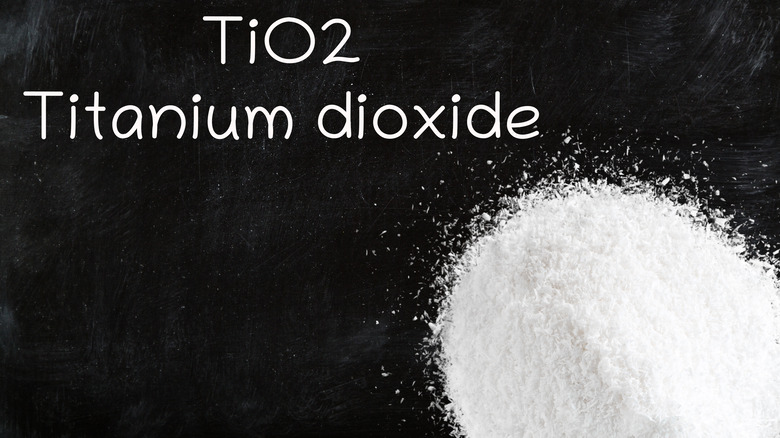How A Controversial Skittles Ingredient Ignited A Lawsuit
On Thursday, July 13, a law firm that is well-known for representing plaintiffs in class action lawsuits (per Bloomberg Law) filed in a federal court to certify a class of plaintiffs for the purpose of suing Mars, Inc., the candy company that manufactures Skittles. The filing was made in the U.S. District Court for the Northern District of California by Bursor & Fisher on behalf of Jenile Thames.
Specifically, Thames has volunteered to take the lead plaintiff role in a class action lawsuit that accuses Mars of misleading the public regarding the safety of Skittles for human consumption. The concern stems from the company's use of a controversial coloring agent that helps make the rainbow of colors that Skittles are known for, per USA Today. If the Court certifies the class, then anyone who qualifies as a member based on the court's requirements can collect a portion of any judgment in the class's favor without having to participate in, or fund, the lawsuit, per ClassAction.
Of course, any judgment would be a long way off because the court may take many months to render a decision regarding class certification. Even then, it could take years before members of the class see the case resolved in their favor – if that's even how the case gets resolved. In the meantime, Mars will, presumably, continue to use the controversial ingredient that has Thames vexed enough to go to all this trouble.
Titanium dioxide is the Skittles ingredient at issue in the lawsuit
Titanium dioxide is a white powdery inorganic compound that's used to brighten pigments in nonfoods such as paints and plastics as well as consumables such as pharmaceuticals and foods, according to the Titanium Dioxide Manufacturer's Association. It's what helps make Skittles' famous rainbow really "pop," per Dayton247now. The TDMA claims that titanium dioxide is nontoxic. And while that may be true as a technical matter, it does not mean that ingesting titanium dioxide won't have long-term health consequences. In fact, titanium dioxide is suspected to be potentially harmful to humans because it's incredibly small. That nanoscopic structure could allow it to breach the blood-brain barrier (via Forbes).
It's not known whether and to what extent ingestion of titanium dioxide may be associated with negative health outcomes, but significant concerns have been raised by credible sources in recent years. "Limited research" on animals suggests that it could play a role in the development of lung cancers, according to Healthline. More importantly, Mars committed to removing titanium dioxide from its food products by 2021, according to an October 2016 press release from the Center for Food Safety.
"Studies have shown that the human health risks associated with ingesting nanoparticles of many common food additives far outweigh any utility for producers," the CFS said at the time. In fact, the European Union has banned titanium dioxide's use in foods effective August 7, 2022, according to the USDA Foreign Agricultural Service.

